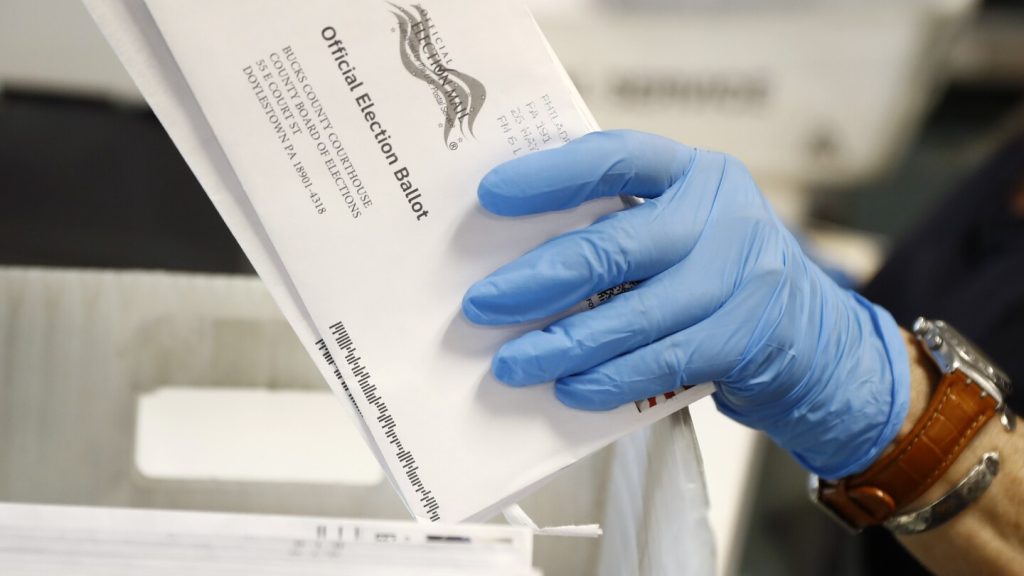The Pennsylvania Supreme Court has agreed to consider whether counties must accept provisional ballots cast by voters on election day at polling places if their mail-in ballots lacked secrecy envelopes or were rejected for other flaws. This decision could impact thousands of votes in the upcoming Nov. 5 election, as Pennsylvania is considered a critical state in the presidential contest. The appeal stemmed from a case in Butler County where two voters had their mail-in ballots rejected due to missing secrecy envelopes, but were later allowed to cast provisional ballots, which were initially rejected by elections officials.
This case is one of several lawsuits in Pennsylvania surrounding mail-in ballots and the rules for their submission. Democrats have been more inclined towards mail-in voting than Republicans, especially after the state expanded the option five years ago. The issue of accurately handwritten dates on the exterior envelopes of mail-in ballots has been particularly contentious and has led to legal battles. Last week, the Pennsylvania Supreme Court overturned a Commonwealth Court decision related to mail-in ballot rules, giving counties the authority to enforce the exterior envelope date mandate.
The Pennsylvania Supreme Court’s decision to take up this case highlights the ongoing debate over the acceptance of provisional ballots for voters who fail to follow all the specific rules for mail-in voting. The appeal was filed by the Republican National Committee and the Republican Party of Pennsylvania, arguing that the courts should not mandate ballot curing that is not explicitly authorized in state election law. The high court has set deadlines for the involved parties to submit their arguments and indicated that they may also consider wider issues related to provisional ballots for rejected mail-in votes.
Provisional ballots in Pennsylvania are typically used when elections officials need more time to determine a voter’s eligibility to vote. County officials oversee elections in the state, and it is unclear how many of the 67 counties do not allow voters to replace rejected mail-in ballots with provisional ones. The plaintiffs indicated that at least nine other counties may have also rejected mail-in ballots during the April primary. In the 2020 election, around 21,800 mail-in ballots were rejected out of approximately 2.7 million cast in the state. The outcome of this case could have significant implications for how rejected mail-in ballots are handled in future elections.
In the midst of a highly contested presidential election, the issue of mail-in voting and the acceptance of provisional ballots has become a focal point of legal battles in Pennsylvania. As one of the key battleground states, any decisions made by the Pennsylvania Supreme Court regarding the acceptance of provisional ballots could ultimately impact the outcome of the election. With deadlines looming for the involved parties to submit their arguments, the fate of thousands of votes in Pennsylvania hangs in the balance, awaiting a final decision from the state’s highest court. Stay tuned for updates as this case unfolds and potentially reshapes the electoral landscape in Pennsylvania.


